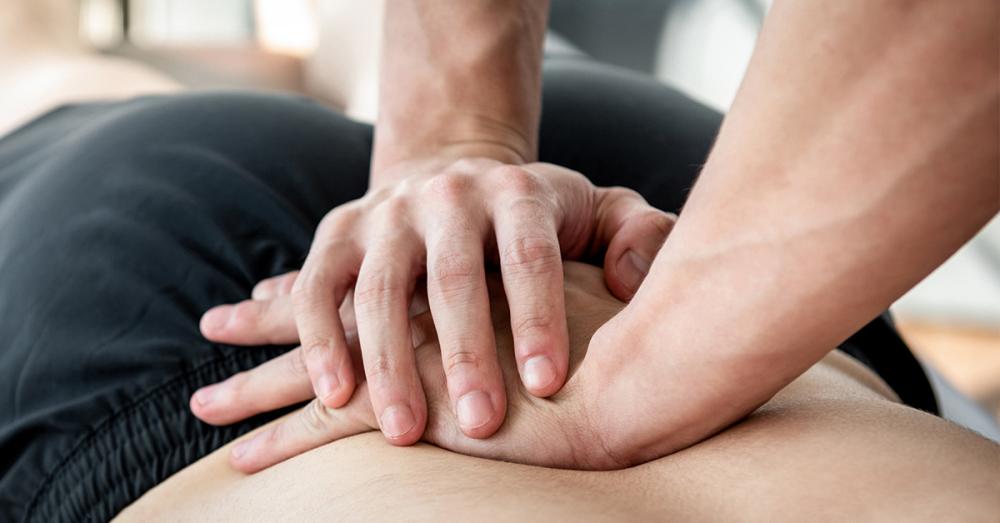Science-based natural, anti-inflammatory methodology. Massaging muscles may reduce inflammation, spur mitochondria formation
December 10 2023

Dear collegues.I am writing to address a matter of
concern within our community that warrants our collective attention.
It has come to my notice that some of our esteemed colleagues, who are graduates of reputable massage schools, licensed massage therapists, and members of professional trade associations, prefer to refer to the massage therapy they practice by alternative names. Furthermore, they choose to title themselves differently than massage therapists. This phenomenon, while perhaps rooted in personal preferences, is not conducive to the overall health of our community. Moreover, there is no need to adopt alternative names when describing the work we do as licensed professional massage therapists.
Through discussions on social media and in private conversations with colleagues, I have sought to understand the motivations behind this practice. The recurring explanation I encounter is that some believe the term "massage therapy" lacks conviction and scientific credibility, with concerns that it might be confused with services of a sexual nature. Frankly, this perspective has never made sense to me.
The procedures we engage in, especially medical and sports massage, are firmly rooted in science-based principles. I invite you to visit my website https://www.medicalmassage-edu.com/blog/the-history-of-medical-massage.htm specifically the blog that delves into the history of medical massage.
Additionally, testimonials on : https://www.medicalmassage-edu.com/testimonials/ feature individuals like Paulina, whose life was profoundly impacted by massage therapy. Phil's story is another testament to the transformative power of our practice.
Some colleagues have expressed concerns about the perceived lack of scientific evidence supporting massage therapy. Allow me to share that the esteemed authority, Science Translational Medicine, is a reputable source in medical publications. The editorial board's approval of research papers for publication is held in high regard within the medical community. In fact, I am personally familiar with the development of a research protocol that has recently been accepted for publication. The outcomes of this research, which replicates a clinical experiment conducted in us my old country, substantiate the foundational principles underlying the entire medical and sports massage scope of practice .
Please click this link entire program is underlying on all this fundamental research and science behind of it. I'm talking on the entire continent of website Medical Massage Education
I encourage you to proudly refer to this study, confidently asserting that massage therapy is a science-based procedure. Furthermore, let us collectively undertake the responsibility of educating the healthcare profession .” Massaging muscles may reduce inflammation, spur mitochondria formation “-Enjoy reading below
Massage Therapy Attenuates Inflammatory Signaling inflammatory After Exercise-Induced Muscle Damage Massage Therapy DOI: 10.1126/scitranslmed.3002882, 119ra13 (2012);4 Sci Transl Med, et al.Justin D. Crane
Massaging muscles may reduce inflammation, spur mitochondria formation.
USA Today (2/2, Vergano) reports in "Science Fair" that according to a study in Science Translational Medicine, "kneading muscles reduces inflammation and spurs cellular energy production." In the experiments, researchers found that "massaged muscle cells had higher activation of gene pathways that spur mitochondria," as well as "fewer signs of painful inflammation." However, "massage didn't lower levels of lactic acid build-up in muscles often blamed for the 'burn' in exercise."
The Los Angeles Times (2/2, Brown) reports, "Massage also seemed to help cells recover by boosting amounts of another protein called PGC-1alpha, which spurs production of new mitochondria." The Times adds that according to researcher Dr. Mark Tarnopolsky, "exercise is the best way to reverse damage caused by common conditions including diabetes, obesity and aging."
Bloomberg News (2/2, Lopatto) reports that in the study, "subjects were exercised to exhaustion, which took about 70 minutes. One leg was massaged; the other wasn't. Both were biopsied immediately after the therapy and 2.5 hours later. The massaged leg showed slower production of interleukin-6 and tumor necrosis factor alpha, both linked to inflammation."
According to the Wall Street Journal (2/2, Hobson) "Health Blog," the researchers hypothesized that reducing the production of molecules linked to inflammation may be similar to the action mechanisms of aspirin and ibuprofen, both anti-inflammatory drugs.
WebMD (2/2, Goodman) reports, "In recent years, a number of studies have shown that remedies for muscle soreness that work by turning down inflammation -- things like ice baths or anti-inflammatory medications -- may also have a downside. They may us also block muscle repair and growth, which depends on inflammation."
However, according to Tarnopolsky, this study suggests that massage may be "an intervention that suppresses the inflammatory response but still allows, and actually enhances, the [recovery] response." Also covering the story are HealthDay (2/2, Preidt) and the UK's Daily Mail (2/2).
Add New
Comments
no comments found
Recents Posts
December 01 2024
Exercise vs. Massage: The Power in Rehabilitation
October 21 2024
Sciatic Nerve Neuralgia: Negative Impact on Other Body Systems
September 03 2024
We must combine medical and sports massage protocols





